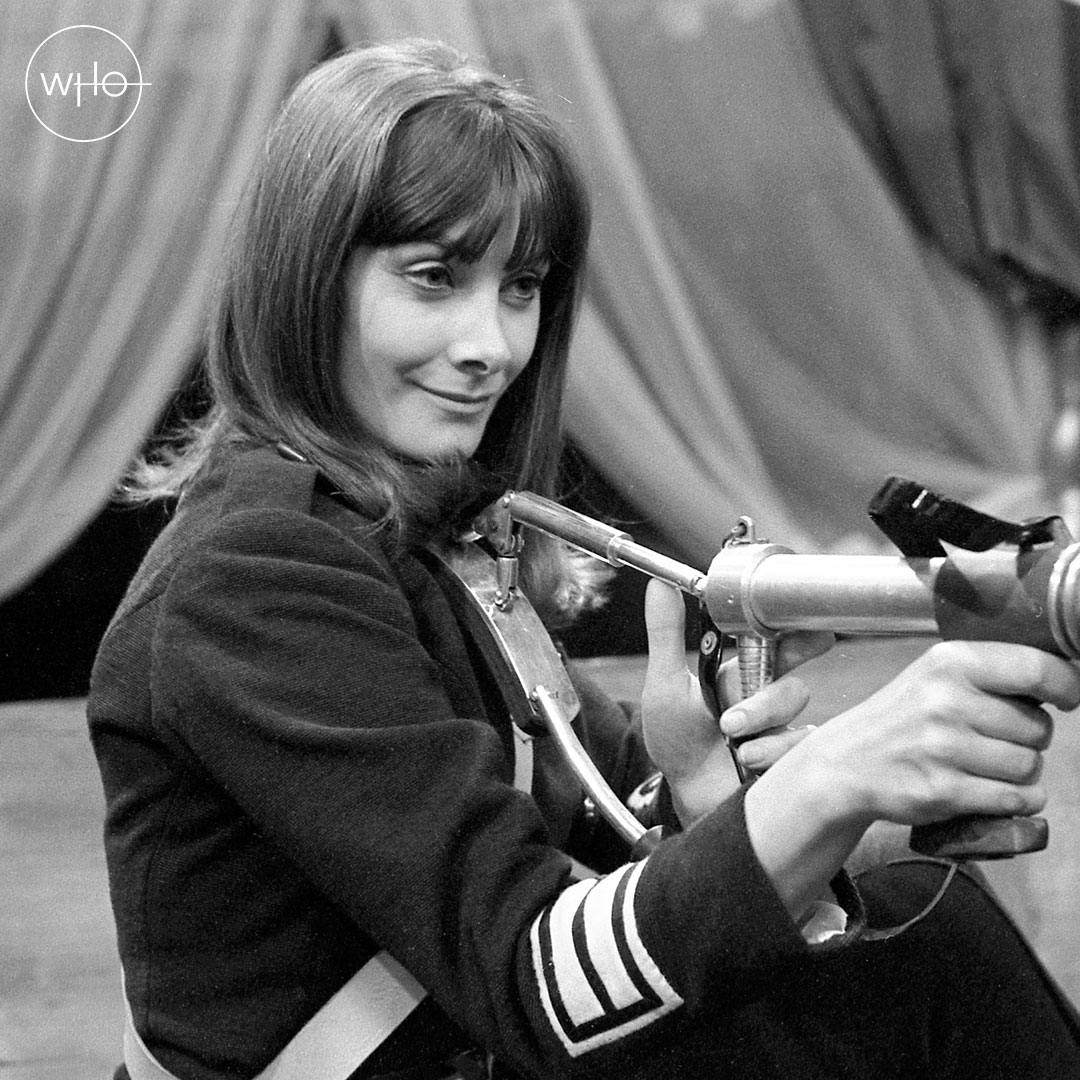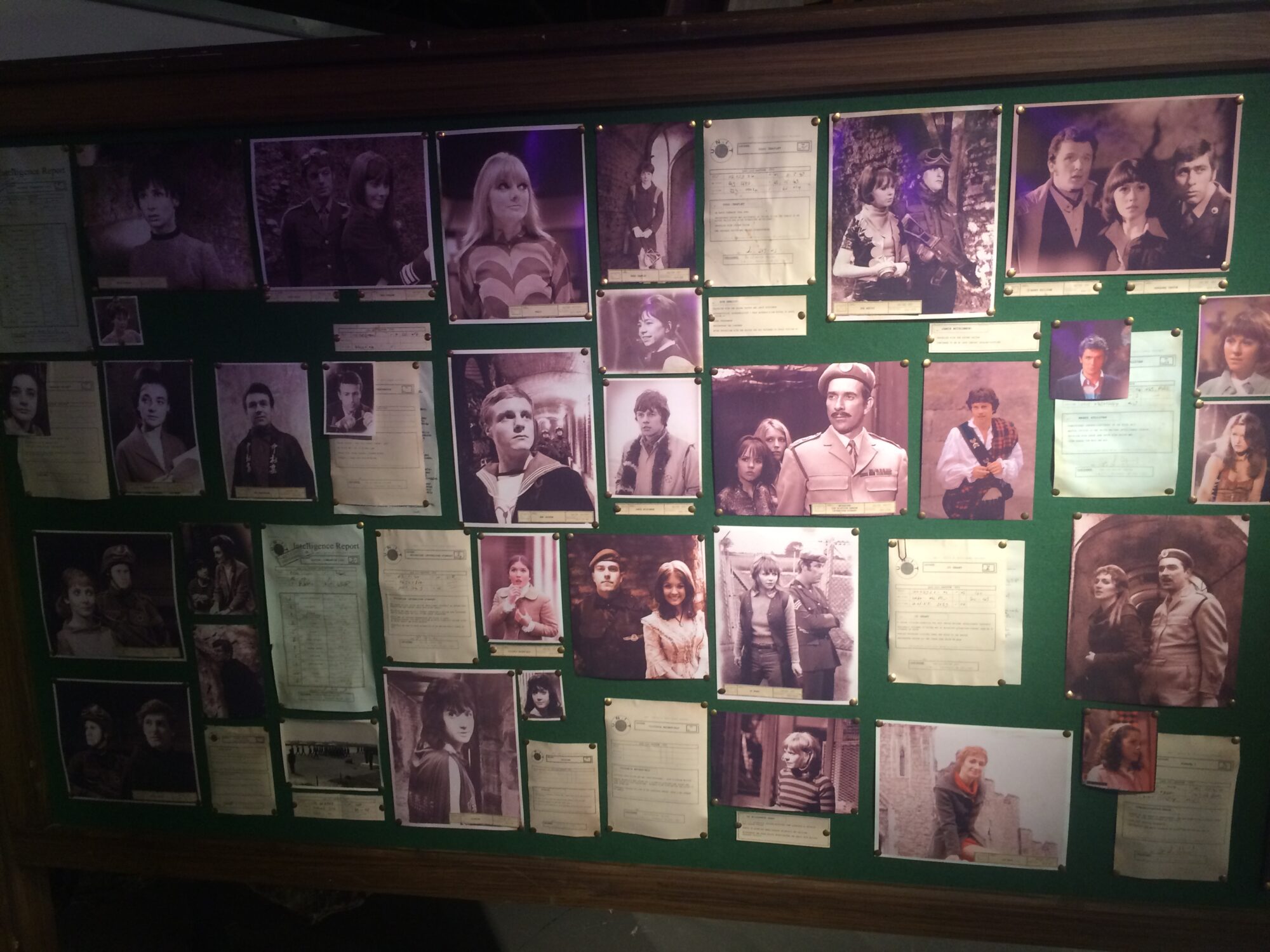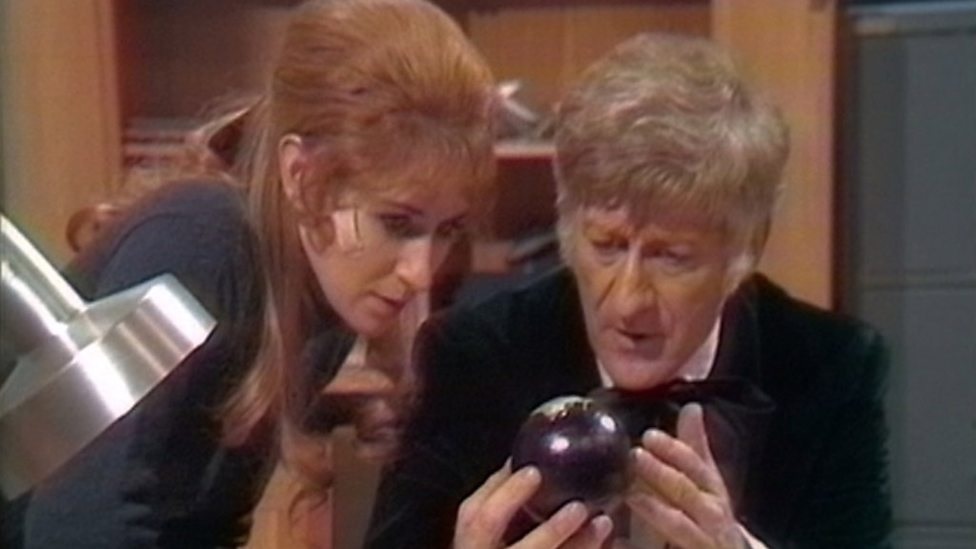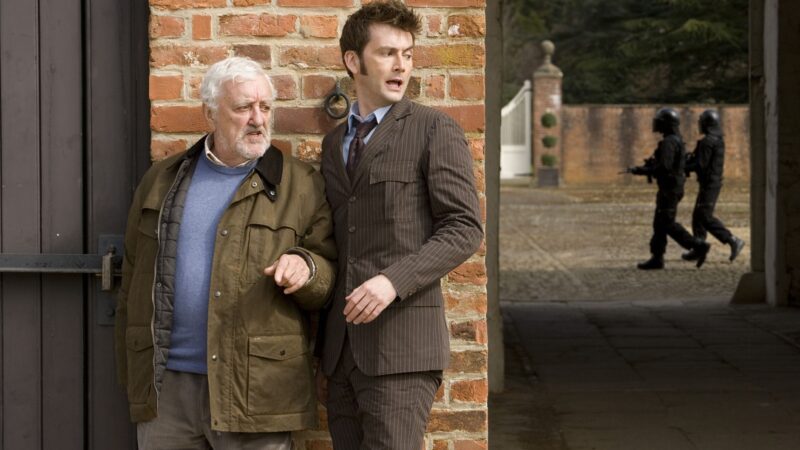Working out who the official Doctor Who companions are is trickier than you might think. In this post, we’ll attempt to find out…

First, it’s worth mentioning that some Doctor Who companions are easy to spot. These are the bona fide series regulars who are in it for the long haul with the Doctor. Their arrival in the TARDIS is normally announced with a certain amount of ceremony in the ‘real world’; the actors are usually unveiled to the public in a photo call of some sort, or even (in the case of Bill Potts played by Pearl Mackie) revealed in a specially-written scene broadcast during a sporting event.
Beyond these obvious points, the usual criteria for classing a Doctor Who companion is whether they had a trip in the TARDIS or not. If they didn’t, the general consensus is that the person is simply a guest character rather than an official Doctor Who companion.
But as you can imagine, there are several problems with this definition. For a start, there are a great number of guest characters who have travelled in the TARDIS during their particular stories, but could never (realistically) be considered true Doctor Who companions.
One of these is the beloved detective Duggan from the 1979 story ‘City of Death,’ who – to all intents and purposes – was a guest companion in this particular story, teaming up with the Fourth Doctor and Romana to take on the Jaggaroth, and even taking a trip in the TARDIS to travel back in time some 400 million years. Indeed, Duggan was crucial to the defeat of the demented Scaroth, performing what can only be described as “the most important punch in history.”

(C) BBC
Despite this, Duggan is seldom considered to be a genuine Doctor Who companion – perhaps because it was obvious that he was only going to feature in this particular story, and showed no special interest in joining the Doctor, Romana and K9 on their travels through the cosmos. He wanted to unravel the mystery of the many Mona Lisas, defeat the Jaggaroth, and go home. “Bye, bye Duggan!” you might say.
And yet, conversely, there is the character of Sara Kingdom from the epic ‘Daleks’ Master Plan‘ from 1965/66, whom many people consider to be a true Doctor Who companion. And yet she performed a similar role to Duggan in that she teamed up with the First Doctor and Steven and took many trips in the TARDIS over the course of the story with no real intention of staying for the long haul. So how is Sara Kingdom any different from Detective Duggan?
Well, for a start, she appeared in twice as many episodes; Sara Kingdom featured in eight of the 12 parts of ‘The Daleks’ Master Plan.’ And then there is the fact that she was legitimately created as a replacement companion after her predecessor (Katarina played by Adrienne Hill) was deemed unsuitable for the series.
Moreover, Sara Kingdom was considered important enough by UNIT to be taken to the Black Archive for screening, as demonstrated by the inclusion of her photo on UNIT’s picture board of the Doctor’s known associates (as seen in ‘The Day of the Doctor.’)

(C) Lovarzi
But these details aside, there is nothing especially different about Sara Kingdom. And if one solely uses the criteria of ‘travelling in the TARDIS’ as a means of defining who is a Doctor Who companion and who isn’t, then (arguably) the likes of H.G. Wells, Albert Einstein and the residents of Little Hodcombe should also be included – not to mention the crew of the freighter from ‘Earthshock.’
Perhaps, then, it would make more sense to class Doctor Who companions based on whether they travelled in the TARDIS and whether they featured in multiple stories. This isn’t a perfect definition, but it does widen the net somewhat; it allows the likes of the Brigadier and Sergeant Benton to make the cut, and this makes sense given their prominence and importance in the Whoniverse.
Although, of course, it does mean that we also have to include the Master / Missy, at the risk of making your brains hurt…
And speaking of headaches, this definition is still problematic when it comes to the likes of Liz Shaw – UNIT science officer and companion to the Third Doctor. In Liz’s case, fandom is in no doubt over Liz Shaw’s status; she is undeniably a Doctor Who companion, appearing in all four stories of Jon Pertwee’s first season.
And yet Liz Shaw never had a trip in the TARDIS. At this point in Doctor Who history, the Time Lord had been exiled to Earth and had lost all knowledge of how to pilot his famous craft. His adventures with Liz, therefore, were entirely Earth-bound. In this season, Liz Shaw (technically) was no more of a Doctor Who companion than the Brigadier, other than the fact that she was cast as one.

(C) BBC
This definition also runs into trouble when we try to tackle Doctor Who companions like Grace Holloway from the Doctor Who TV movie. Certainly, Grace fulfilled a companion-like role in this adventure, and even enjoyed a brief trip in the TARDIS, but she only appeared in this one story. Indeed, she probably had less screen time than Duggan. And yet she is generally considered to be a legitimate Doctor Who companion by the masses, perhaps because (like Liz Shaw) she was officially cast as one.
Perhaps, then, this is the only clear way of deciding whether a character is a Doctor Who companion or not – that is, if the production team tells the actor that they are being cast as such, like Bernard Cribbins in ‘The End of Time’ parts one and two.

(C) BBC
It does mean, though, that by this definition some beloved characters won’t quite make the cut, and this means removing the likes of Jackie Tyler and Chang Lee from the official Doctor Who companion roster. They were friends with the Doctor, and they travelled in the TARDIS, but they were never officially cast in the companion role. They were simply introduced as supporting characters.
This definition also means that the likes of Liz Shaw, Astrid Peth, Lady Christina de Souza and Adelaide Brooke can comfortably sit on the Doctor Who companion list. Problem solved.
Until, of course, you remember that Adam Mitchell exists…
So over to you, internet. How do you think a Doctor Who companion should be defined? And do the likes of Sara Kingdom and Chang Lee make the cut? Let me know in the comments below.








I like to think of Duggan as a companion that never was. Had the serial City of Death been in New Who, it’s possible he could have had the Adam Mitchell treatment of getting to briefly appear in the following story. City of Death is also my favourite Who story, so that gives him bonus marks in my books.
I don’t think that Sarah Kingdom should count as a companion as she only appeared in one story, I know she flew in the TARDIS with the Doctor but it was only 1 story, if that’s the basis for a companion then HG Wells would be a companion as he went with the Doctor in Timelash, I mean are the Cybermen classed as a companion due to them travelling with the doctor in Attack of the Cybermen….. NO
Duggan, HG Wells and Sara and people like that are Friends of the Doctor and nothing more
Now the Brig, Benton and Mike Yates are companions of the Doctor, they were with the 3rd Doctor longer than any of his companions (Liz, Jo & Sarah), think about it Liz is classed as a companion and rightly so but never travelled in the TARDIS so why isn’t Benton Mike and the Brig, they have to be classed as companions else the whole thing is a mockery
see I haven’t thought about this at all 🙂